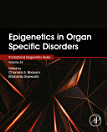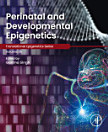Post-transcriptional Gene Regulation in Human Disease
About this ebook
About the author
Dr. Buddhi Prakash Jain is an Assistant Professor at the Department of Zoology, Mahatma Gandhi Central University, Motihari, Bihar, India. He completed his doctoral studies at the School of Life Sciences, Jawaharlal Nehru University (JNU) New Delhi, India. His research interests include gene expression regulation and endoplasmic reticulum stress in cancer. He is the recipient of several awards including a gold medal in Master Programme (M.Sc.), EMBO travel award, DST (Department of Science and Technology) Govt of India, Young Scientist travel award, and has published several papers in reputed international journals and a number of books and book chapters.
Shyamal Goswami has a research career spanning 35 years. He has experience teaching in biochemistry, cellular and molecular biology and redox biology at the postgraduate level. He served as Associate Professor and Professor in the School of Life Sciences at Jawaharlal Nehru University, India, from 1998 to 2020. Prior to this he was a Research Assistant Professor in the Department of Anatomy and Cell Biology at the State University of New York-Health Science Centre at Brooklyn, New York, USA.Dr. Goswami has contributed numerous publications across his field and has more than 1500 citations. He also co-authored Protocols in Biochemistry and Clinical Biochemistry and co-edited Post-transcriptional Gene Regulation in Human Disease, both published by Academic Press/Elsevier. His main areas of research are cell signaling and gene expression in the cardiovascular system; redox biology of degenerative diseases; and signal scaffolds and cell functions.
Dr. Tapan Sharma is a Postdoctoral Research Scientist at the University of Massachusetts Medical School, Worcester, MA, USA. His research focuses on understanding the epigenetic mechanisms involved in the regulation of skeletal muscle differentiation, with more than nine years of laboratory experience in the field of ATP-dependent chromatin remodelers. He has worked with mouse models and multiple primary and immortalized cell lines, having led projects independently during Ph.D. and post-doctoral associateships.






